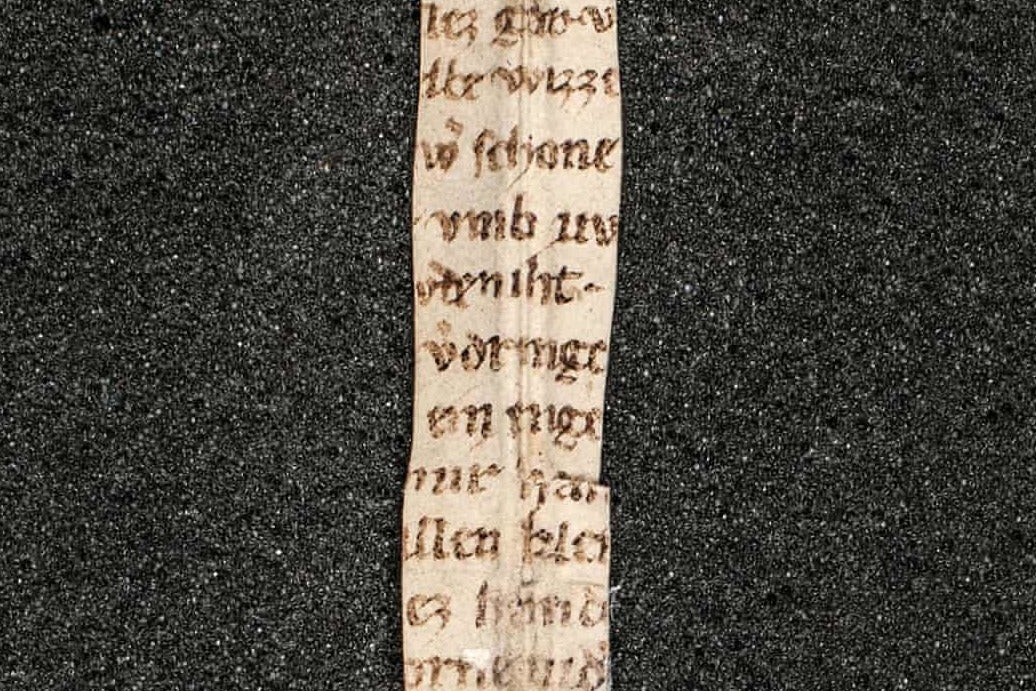Fragment of medieval ‘vagina monologue’ found at Austrian abbey
The text tells of a virgin woman having a conversation with her vulva about which of them causes the most pleasure in men. It is regarded as one of the first examples of erotic poetry

Medieval experts have made a remarkable discovery at the Melk Abbey in Austria: a fragment of the famous “vagina monologue” poem that dates the work to 200 years earlier than thought.
The poem, “Der Rosendorn” (The Rose Thorn), tells of a virgin woman having a conversation with her vulva about which of them causes the most pleasure in men.
A strip of the poem was discovered wrapped around a Latin text at the abbey – likely having been recycled as parchment was rare.
Measuring 22cm by 1.5cm, the fragment was identified as part of “Der Rosendorn” by Nathanael Busch of Siegen University in Germany.
He worked with academics from Austria’s Academy of Sciences (OAW) and the universities of Mainz and Marburg to decipher the few words visible.
They realised that the poem dated to around 1300 – it was thought to have been composed about two centuries later, at the end of the Middle Ages.
In “Der Rosendorn”, the woman argues that her looks are what win men over, while her vulva accuses her of focusing too much on her appearance.
After briefly parting company, the two decide they are better together because a person and their sex are inseparable.
The two previously discovered versions of the poem, known as the Dresden Codex and the Karlsruhe Codex, are considered by medievalists as one of the first examples of erotic poems. It is not known whether the author was male or female.
Dr Christine Glassner, of the Institute of Medieval Research at OAW, told Austrian media that the text “at its core is an incredibly clever story, because of the very fact that it demonstrates that you cannot separate a person from their sex”.
Join our commenting forum
Join thought-provoking conversations, follow other Independent readers and see their replies
Comments
Bookmark popover
Removed from bookmarks